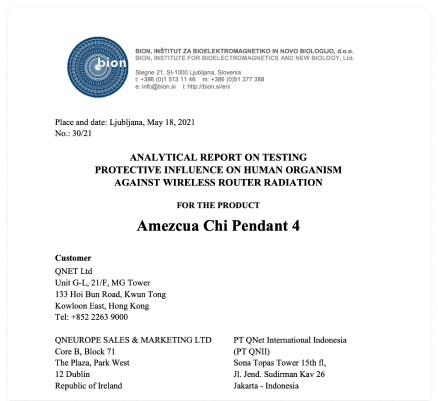A HOLISTIC APPROACH TO WELLNESS FOR A MORE ENERGISED LIFE
HARNESSING THE SCIENCE
OF NATURE
QNET’s innovative, science-backed range of wellness products, brought to you under the Amezcua brand, take inspiration from nature’s intricate design quality to promote whole-body health for all the family. Designed for your busy lifestyle, Amezcua’s innovative products harmonise and energise, protect the body, and restore balance reconnecting you with the rhythms of nature.

Discover the Amezcua lifestyle

Amezcua Chi Pendant 4
Harmonise

Amezcua Bio Disc 3
Energise

Amezcua Bio Light 3
Restore
Amezcua Testimonials
Meet our scientific experts
Amezcua products are developed in collaboration with our esteemed Scientific Advisory Council, which brings together world-renowned experts in multiple fields. Our members’ accumulated years of research in quantum physics, plant biology, advanced biophoton technology, and the human energy field have shaped Amezcua’s breakthrough technology and distinctive designs.

Dr. Beverly Rubik, Ph.D.
Dr. Rubik is a biophysics scientist, author, and scholar known for her cutting-edge work in frontier science and medicine that goes beyond the mainstream. She is internationally renowned for her research on the biofield, the field of energy-with-information of living systems.
“When we work at the biofield level, we work at the root of the problem. That’s what we’re doing with Amezcua products.”

Professor Dr. Konstantin Korotkov, Ph.D.
Professor Korotkov is internationally renowned for his pioneering research in the human energy field. A specialist in quantum physics and biophysics, he has dedicated his life to understanding and improving well-being and health through his research.
“I believe in Amezcua products because when we test them, it’s clear to me as a scientist that they bring very positive effects.”

Professor Abiodun Adebayo
Professor Abiodun is a leading expert in the fields of biochemistry and microbiology. He has been actively researching naturally occurring plant compounds for powerful health-giving benefits, and in 2022 was appointed Governing Council Member of the Association of Commonwealth Universities.
“My years of research in the biochemistry of plants have shown that the key to human wellbeing can be found in nature’s energy—and Amezcua is harnessing that in new and exciting ways.”
Inspired by nature, proven by science.
Amezcua Science Archives
Amezcua products are developed with science at the core, guided by leading experts in quantum physics, biochemistry, and health. But we don’t stop there. Our products are continually subjected to rigorous testing by external scientific institutions and certification bodies, ensuring their effects are comprehensively and objectively verified. In addition, studies on Amezcua’s cutting-edge products have been widely featured in peer-reviewed scientific journals.
As a result, Amezcua customers can be confident that our products are highly effective and safe to use.
